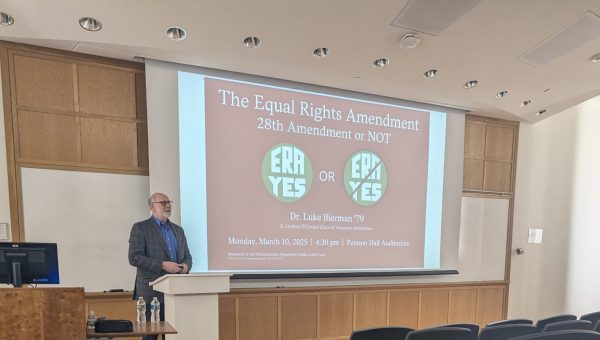First-Years No Longer Able to Choose Roommates
Colgate will soon join the growing number of universities and colleges that only allow incoming first-years to be assigned a roommate through Residential Life, instead of giving incoming first-years the option to choose their own roommate. This change will make Colgate’s incoming student housing process similar to that of Duke University, Stanford University and Yale University, which exclusively assigns incoming students roommates.
However, the room assignments will not be entirely random. The Office of Residential Life will send out an extensive “First-Year Housing Preference Form” they believe will best match students to the right roommate and residence hall.
“The questions on this survey include topics related to sleeping habits, tidiness, room type (e.g. single, double, triple), roommate gender preference and a few others,” Director of Residential Life Stacey Millard said.
The survey will go live on the incoming students’ housing portals on June 1. Students will have until June 29 to complete the survey. After all students have completed the survey, the Residential Life Office will match students based on their answers. Roommate and residence hall assignments should be released on August 1.
The form will allow Residential Life to match students with roommates based on important similarities. The responses of all the incoming first-years will be considered together in order to create the residence hall floors and residential commons communities.
Incoming first-years live in either Andrews Hall, Bryan Complex, Curtis Hall, Drake Hall, East Hall, Gate House, Stillman Hall or West Hall. Students will no longer be able to indicate which dorm building they would prefer.
Previously, students have been able to request their roommates directly through the ResLife portal if they found someone they felt they were compatible with, but these roommate arrangements have not always been successful.
“The truth is, even those who have opted to live together in the past have encountered challenges, as is common when sharing a space with someone else for the first time,” Millard said.
The Residential Life Office hopes that not allowing rooming requests will broaden the incoming students’ communities and circles of friends, and create a more inclusive campus for all incoming first-years.
“We feel confident that there will be many ways for you to build meaningful connections with your roommate, floormates and Residential Commons throughout your first year at Colgate,” the Residential Life Website reads.
Many students are undecided about what the benefits and drawbacks of this change will be.
“As a [first-year] I think that forcing everyone to have a random roommate might make it easier to meet everyone in your grade. On the other hand, it definitely makes move-in day much more daunting if you don’t know your roommate,” first-year Grace Crosson said.
Sophomore Jack Herzog feels the new changes are not positive.
“I think it is very crucial to be able to pick your own roommates when coming into a new school,” Herzog said. “The students are entering into a new school, a new community, a new town and going to be facing new challenges. I think that having a familiar face and knowing the person you will be living with is the least that Colgate should do to make them feel comfortable.”
Residential Life is working towards greater resources in the event that a first-year student dislikes their assigned roommate.
“[The office of Residential Life will be more present on campus] to ensure incoming first-year students are informed about the resources available for support in fostering and developing the roommate relationship, and if necessary, the room change process,” Millard said.
Some students see the new policy as a welcome change.
“I think this [new policy] could be beneficial for the incoming [first-years],” sophomore Keri Adler said. “As someone who chose my own roommate as a [first-year] I felt like there was a lot of pressure to be best friends and always spend time together. By forcing everyone to room random[ly], it allows people equal chances to meet everyone on campus.”
Contact Zoe Frishberg at zfrishberg@colgate.edu.





